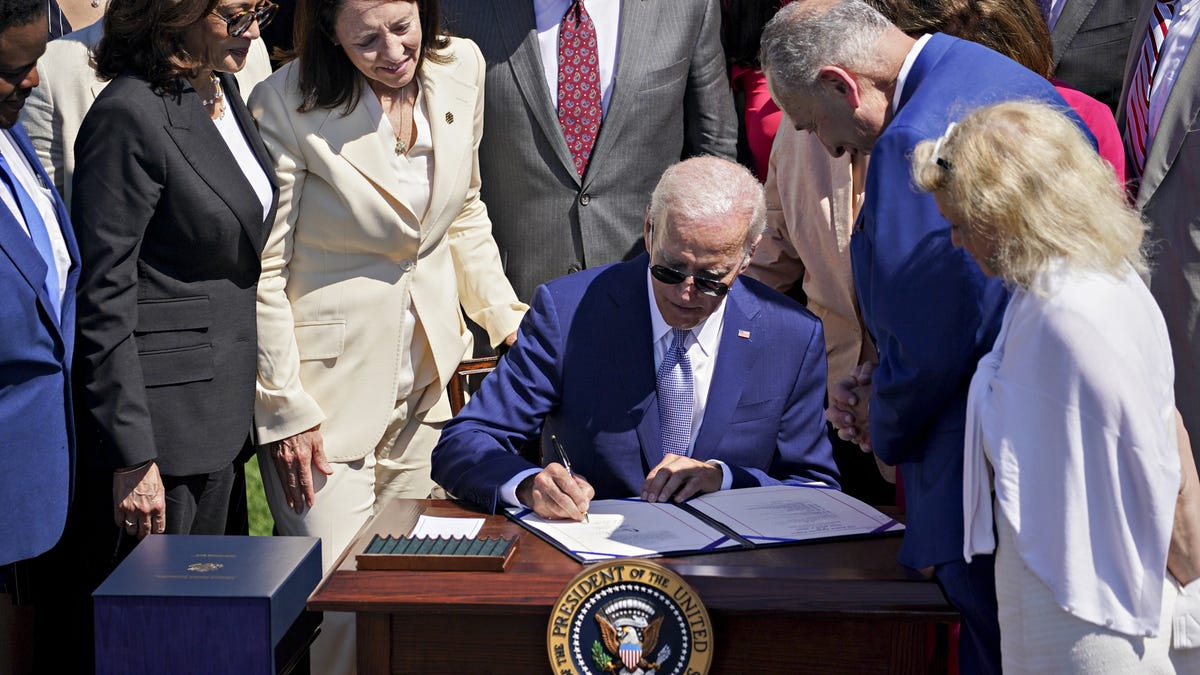US Bans Tech Companies With Federal Funding From Building Factories in China for 10 Years
The goal is to boost the US chip manufacturing industry and reduce reliance on China.

President Joe Biden signed the CHIPS and Science Act of 2022 on the South Lawn of the White House in August.
The Biden administration has released new details of its strategy for spending $50 billion in funding under the CHIPS and Science Act. President Joe Biden signed the CHIPS Act into law in early August to help boost the US chip manufacturing industry amid a global microchip shortage.
As part of a plan to restore the US semiconductor industry and protect national security interests, the CHIPS Act prohibits US tech companies that receive federal funding from building new, advanced factories in China for at least 10 years.
"Companies who receive CHIP funds can't build leading-edge or advanced technology facilities in China for a period of 10 years," Secretary of Commerce Gina Raimondo said in a press briefing Tuesday. "Companies who receive the money can only expand their mature node factories in China to serve the Chinese market."
One of the main objectives of the CHIPS Act is to "establish and expand domestic production of leading-edge semiconductors in the United States" to help reduce reliance on foreign producers like China, Raimondo said. "The United States consumes more than 25% of the world's leading-edge chips and produces zero of those chips."
The White House didn't immediately respond to a request for comment.

